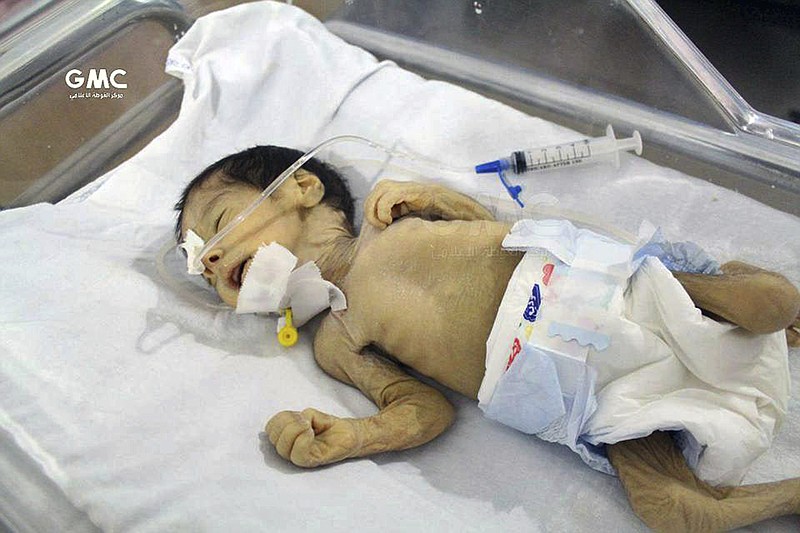BEIRUT (AP) - The worst malnutrition rate since the start of the Syria conflict nearly seven years ago has been recorded in a rebel-held suburb of Damascus besieged by the government for more than four years, the United Nations children's agency said Thursday.
Nearly half of the 400,000 people trapped in eastern Ghouta suburb, northeast of Damascus, are believed to be children, according to UNICEF.
The U.N. agency said a survey it conducted in the area in November found 11.9 percent of children under age 5 are suffering from acute malnutrition, a rise from only 2.1 percent according to a similar study in January.
The U.N. said it was concerned about ongoing violence in Ghouta, which has intensified in recent days. On Wednesday, Russia informed the U.N. that the Syrian government has agreed to a 48-hour truce in the area.
The truce announcement came at the start of a new round of U.N.-sponsored talks held in Geneva.
Activists reported on Thursday a reduction, but not cessation, in government bombings there. The Britain-based Syrian Observatory for Human Rights has recorded that at least 150 civilians, including 35 children, were killed since Nov. 14.
The International Rescue Committee estimated 450 people are in need of desperate medical evacuation, including cancer and kidney dialysis.
"A two-day truce is not nearly enough for civilians facing grave violations of international law - including bombardment and besiegement - but it is a window of opportunity to save the lives of the most desperately in need of treatment," Thomas Garofalo, IRC's Middle East public affairs director, said.
UNICEF Regional Director Geert Cappelaere called for the lifting of the government-imposed siege, saying that the violence and siege have "devastated" the health of children.
The government has tightened the siege, in place since mid-2013, in recent months, preventing smuggled goods from reaching the suburb. UNICEF said rising costs of basic goods and cooking supplies "has made preparing a meal out of reach for most."
The price of a basic portion of bread costs 85 times more in eastern Ghouta than in Damascus, which is 15 kilometers (9 miles) away, according to UNICEF.
